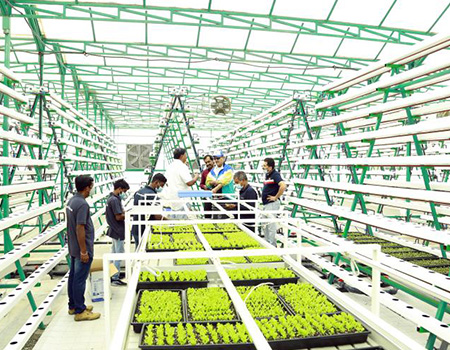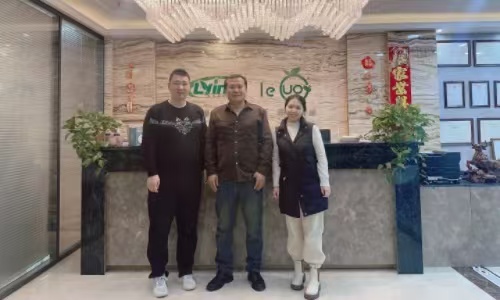Growing crops in the soil is clearly not feasible in Kuwait. If you want to grow some vegetables and fruits in the Kuwait region, you can do so using a hydroponic system, indoors or outdoors, on a small scale or on a large scale.
With temperatures in Kuwait reaching a maximum of 54°C in 2016, we can imagine that growing crops in the summer would be quite a struggle. At that time, if it was grown by hydroponics, it could also be grown under very high temperature conditions.
-Hydroponic container farming
If you want to successfully grow vegetables in the summer, then you can try
container farming. Because growing vegetables in containers will not be affected by external weather changes, and the temperature and humidity inside can be adjusted, so there is no problem in growing vegetables throughout the year.
-Marketable hydroponic system
If you want to grow indoors, such as at home, you can use the
hydroponic tower system and
NFT system, which use three-dimensional planting, do not take up space, and are beautiful and elegant. Vegetables grown at home can be eaten by themselves, no need to buy, for It is a good choice for those who like gardening and home planting.
In the process of conducting trade with our Kuwaiti friends, we found that they are very interested in hydroponics. Although it is hydroponics, it does not waste water, and the water cycle is very water-saving. If you've ever used hydroponic systems, you know why they are so popular right now. Such a hydroponic system allows more people to see the development potential of hydroponic agriculture, so many customers sell and promote it.
In Kuwait, crops can be grown using substrate culture. Sand culture is a soilless cultivation technique that uses sand as a growth substrate and provides nutrient solution in the form of drip irrigation for crop growth. As an important type of soilless culture, its advantages are that the substrate is easy to obtain, low cost and easy to popularize.
There are also sandponic greenhouses in Kuwait. It is a great way to grow tomatoes and cucumbers.
Most of Kuwait is desert, with low soil organic matter content, low nutrient retention capacity, and poor water retention capacity. The natural water resources required for irrigation are scarce. Therefore, harsh climatic conditions and fragile water and soil resources limit the development of local agriculture. However, hydroponics will save more water because of the way of water circulation, and its advantages are being seen by more and more people.
If you are very interested in hydroponics, welcome to visit our official website.



.jpg)






